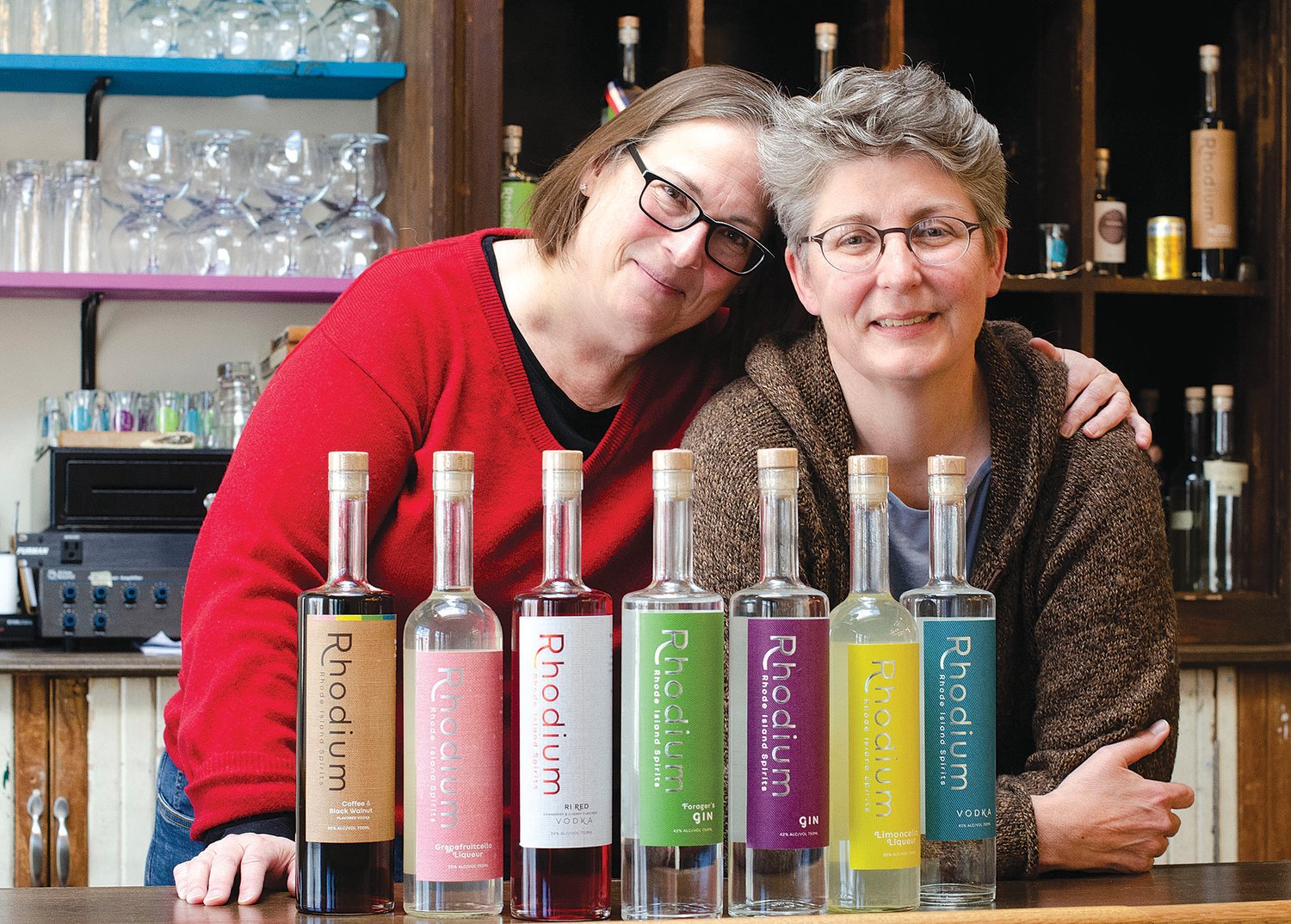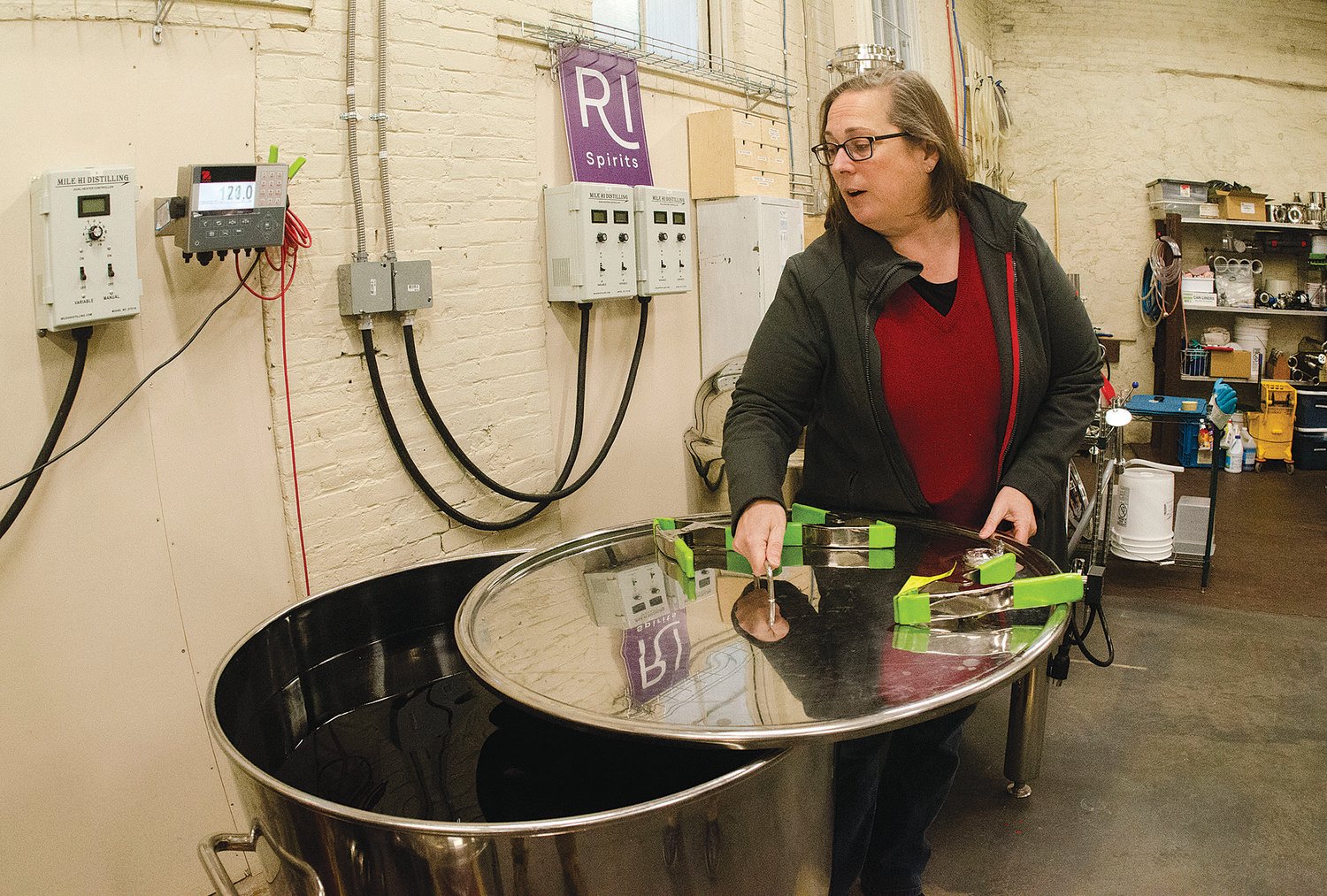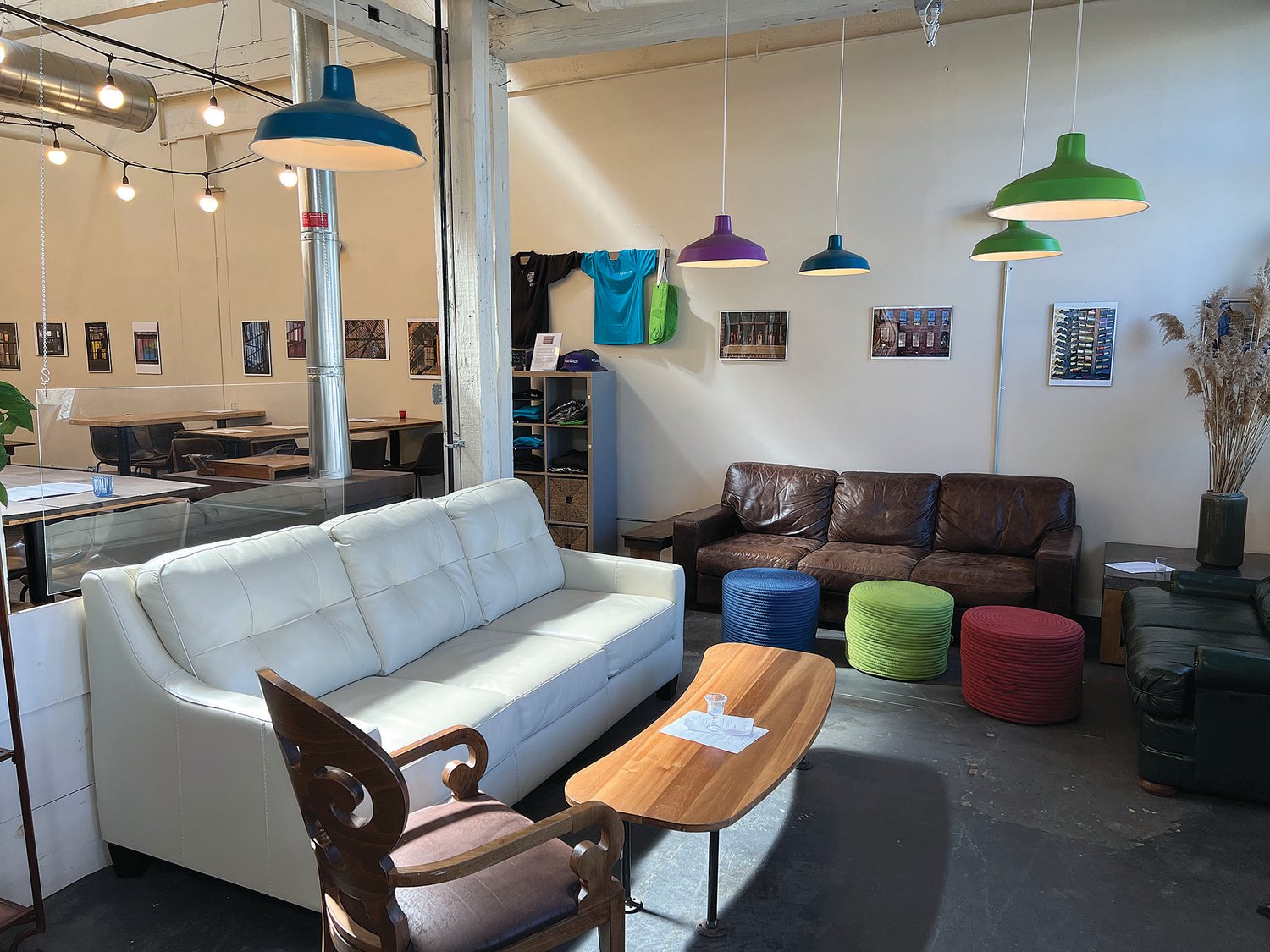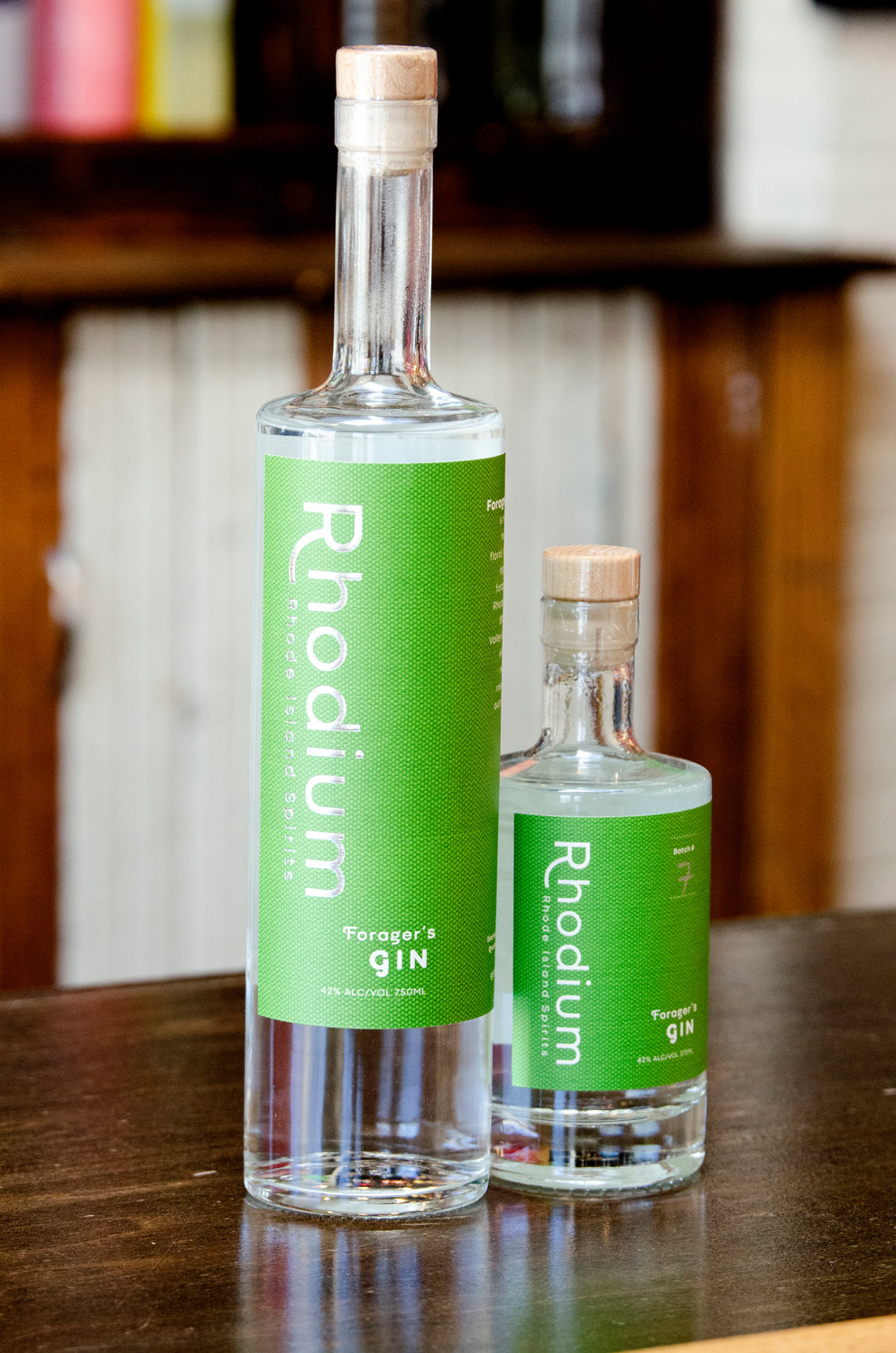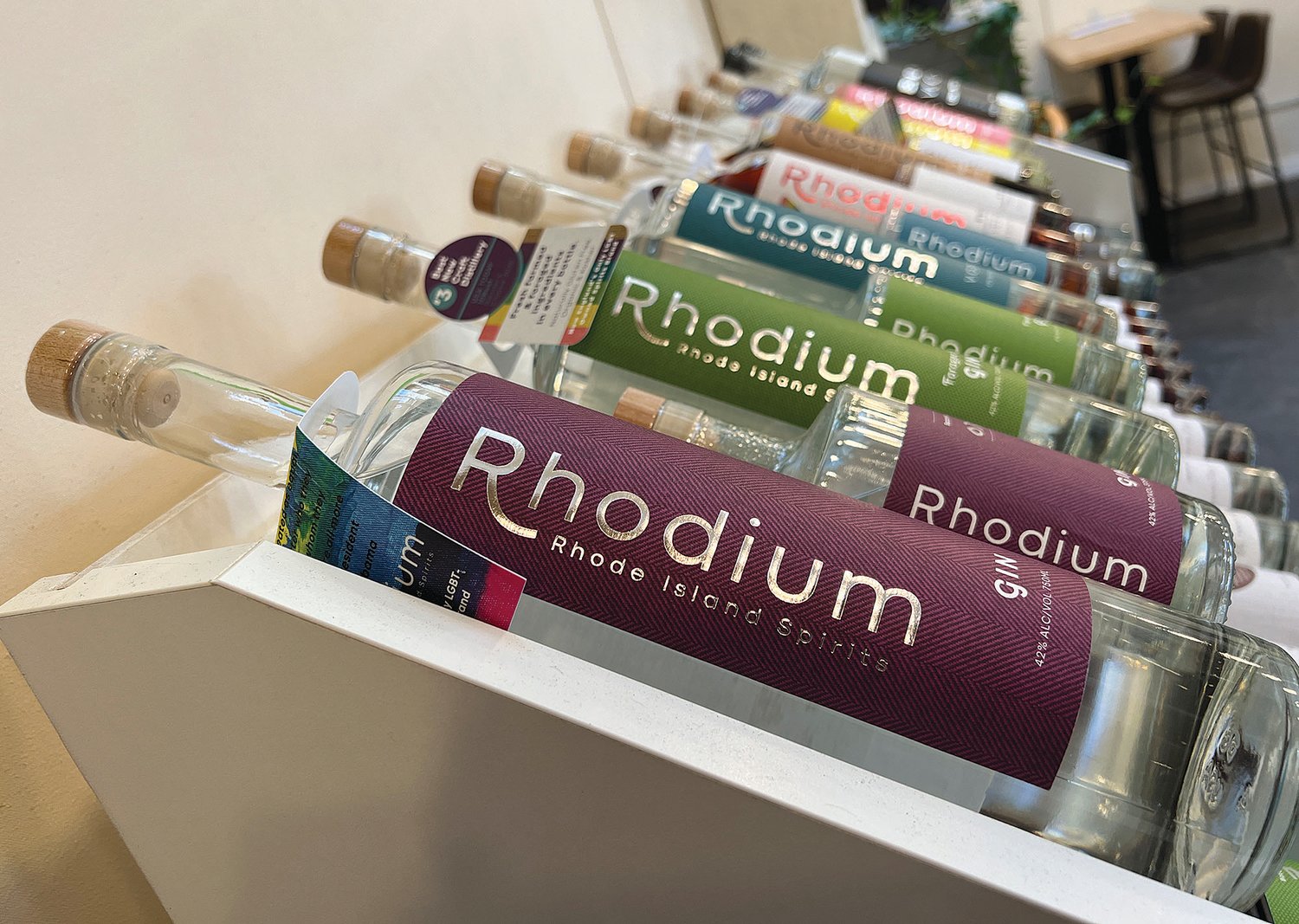Rhode Island distillery relies on farms, fields and wild foraging
These Riverside spouses and business partners are building a new brand, a new business and — they hope — a new appreciation for the art of craft distilling
The founders, co-owners and distillers at Rhode Island Spirits have a saying. It’s actually more than a saying; it’s a philosophy, a sales pitch, and the essence of their business …
This item is available in full to subscribers.
Please log in to continue |
Register to post eventsIf you'd like to post an event to our calendar, you can create a free account by clicking here. Note that free accounts do not have access to our subscriber-only content. |
Day pass subscribers
Are you a day pass subscriber who needs to log in? Click here to continue.
Rhode Island distillery relies on farms, fields and wild foraging
These Riverside spouses and business partners are building a new brand, a new business and — they hope — a new appreciation for the art of craft distilling
The founders, co-owners and distillers at Rhode Island Spirits have a saying. It’s actually more than a saying; it’s a philosophy, a sales pitch, and the essence of their business model.
“When people tell me they don’t like gin, frankly I’m a little sad,” said Cathy Plourde. “I tell them they just haven’t met the right one yet.” That perspective comes from their own experience with one of the world’s most, and least, popular spirits.
Plourde and her wife and business partner, Kara Larson, moved from Maine to England when Larson accepted a marketing job there in 2014. “We were volunteering at a food show in England, and I met a gin at one of the sample tables, and it was a big ‘aha’ moment for me — recognizing how very local ingredients can make a gin shine. It was based on a particular olive with a particular gin, that could be found only in that region,” Plourde said. “We fell in love with gin there.”
In England, gin is held in high regard. A bar might stock hundreds of brands, many produced by craft distillers creating their own unique flavors and varieties. Its presence is similar to the current market for craft beers here in America.
When family health issues called Plourde and Larson back to the States in 2017, they decided to choose a home first, then figure out the next step in their careers. They chose Rhode Island, considering it an ideal location between both New York and Boston. Today they own a home in the beloved Riverside neighborhood known as “The Terrace.”
“I always said we should buy a farm, grow a lot of potatoes, make vodka and retire,” Plourde remembers. That fanciful idea ruminated in their minds and their conversations, before it began to turn real. They realized they actually liked gin more than vodka, and they spent about a year learning more about how to actually make gin and other spirits, and how to start a business.
“Finally, we talked to some friends who were industry folks and they said, ‘you absolutely can do it, you should go for it.’ ” So they did.
Award-winning spirits
Larson has a background in marketing. She has managed her own consulting firm. She also has experience with home-brewing.
Plourde also ran her own business for 15 years, a nonprofit devoted to social justice issues. She also has a background in foraging and terroir. She can walk through the woods and recognize the difference between something that has medicinal properties, something that tastes really good and something that can be deadly.
They launched Rhode Island Spirits in March of 2019, in a rented space within a Pawtucket mill. In the beginning, the business model relied on unique, delicious spirits, mostly gins and vodkas, presented in a cozy, comfortable tasting room, which was the ambassador for their products. The tasting room features a bar built from the mill’s reclaimed wood, couches, board games, coffee tables, high ceilings and a wall of windows overlooking the Blackstone River.
“Before launching, we toured various places. In some places, they gave you a tour of their million-dollar equipment, and then had you sit in a very uncomfortable chair for the tasting. You kind of get a sense of who’s important in that equation,” Plourde said.
Their tasting room is open three days a week, and customers can order flights, a cocktail of their choosing, or from a drink menu that includes various martinis, tonics, liqueurs and Rhode Island Spirits concoctions.
Though just three years old, the company is already winning awards for its products, the most prestigious coming just a few weeks ago. Their Rhodium Forager’s Gin won a gold medal in the San Francisco World Spirits competition — meaning it was judged to be the best gin in the field. Forager’s also won silver from the American Distilling Institute and silver from the American Craft Distilling Institute last year.
Foraging and flavors
All the company’s products carry the brand name “Rhodium.” They distill and package Rhodium Vodka, Rhodium Gin, Rhodium Rhode Island Red Vodka (flavored with cherries and cranberries from local farms and bogs), and their best-seller, Rhodium Coffee Black Walnut Vodka.
The Forager’s Gin embodies Plourde’s interest in foraging. Some of the ingredients in that recipe cannot be found at a market or a farm. About a third of the leaves in that recipe are wild foraged, including elderberry from the Blackstone Valley, red clover and rose hips from the Rhode Island coasts, blended with ingredients like fresh juniper from family farms and other locally grown botanicals.
“We really wanted to capture the character of Rhode Island’s extraordinary farms and wild spaces to flavor a distinctive spirit,” Larson said.
“We work on crafting spirits that are committed to flavor. So farmed, fresh, foraged ingredients are featured in the flavor profile,” Plourde said. “We put a lot of energy into foraging and working with farmers.”
They make a plum vodka, infused with plums from a local farm, Sunset Orchards. “We also have a customer who has a number of plums in her yard and she lets us pick,” Plourde said.
They have a blueberry vodka. “I said I would never do anything blueberry, and then of course the farm manager at Osamequin Farm said, ‘I have a bunch of blueberries, would you like them?’ ”
Their Coffee Black Walnut Vodka is derived from the decaf beans of a Rhode Island company, Downeast Coffee Roasters, operating out of a mill not far from their distillery. The beans are blended with a type of black walnut that is harvested only once per year, in late June. The black walnut extract rests in a holding tank for six months before it is distilled into the vodka, and customers love the final product — “It’s basically an espresso martini in a bottle,” said Plourde.
Flavor is a critical part of their business.
One of their gins (Newport Gin) is distilled and packaged exclusively for the Newport Restaurant Group, for sale in their array of high-end restaurants.
“We will never be able to compete with Tito’s for cost,” Plourde said. “But we will compete with Tito’s for taste.”
Building the business
Though experienced running their own businesses, the spouses had never actually worked together before launching Rhode Island Spirits. They collaborate on everything, but they also have their separate roles. Larson leans toward the marketing and administrative side of the business. Plourde leans toward the products and the sales.
“We have very complimentary skills sets, and we really like each other,” Plourde said.
In addition to the two owners, they employ a production manager and a bar manager full-time. All four get involved in distilling and bottling the products.
Many say the first year is the most difficult for any new business. That might not be true for Rhode Island Spirits, because their one-year anniversary coincided with the start of a global pandemic. That’s when things really got interesting. Their tasting room was forced to close. Supply lines became unpredictable. Sales to restaurants and bars plummeted. Everything was on shaky ground.
“Our business model hit a dead stop,” Plourde said. “We realized we had to change from being tasting-room-forward, to distribution-forward.”
As with all things, there were silver linings.
“The pandemic was hell, and it continues to wreak havoc in the world, but one of the things it gave us was a chance to just stop, and look back, and evaluate the business,” Plourde said. “What are the efficiencies that we’re missing? What is not quite how we want it to be? What will it look like when it reopens?”
One thing they learned was to not run the bar. Products, sales and administration were plenty to handle, without also pouring drinks three nights a week. That’s when they invested in the bar manager.
As restrictions eased and the world began to reopen, Rhode Island Spirits began growing — slowly and deliberately.
One sale at a time
Rhode Island and Massachusetts have different rules for selling alcohol. In the Ocean State, sales must pass through a distributor. So producers are required to sell to distributors who sell to restaurants, bars and liquor stores. In Massachusetts, producers can sell directly to the end buyer, or they can use a distributor, or both.
In either model, sales takes a lot of time and effort. “It really is a lot of legwork,” Plourde said. “I basically show up with my little bag of samples and try to sell it to the decision-maker.”
Rhodium products are currently offered in restaurants and liquor stores throughout Rhode Island, as well as dozens of liquor stores in Massachusetts. They are just beginning to get penetration into Massachusetts restaurants.
“We’re working on Massachusetts as a market, and that is a super growth opportunity for us,” Larson said.
Asked about the challenges of breaking into an industry that has been dominated by men for centuries, Plourde dismissed the idea quickly.
“I may knock on a door, and if at some point it seems pointless, because of something I can’t see, I will leave and go somewhere else. I frankly don’t have a lot of time for that,” Plourde said. “I have also learned there is a lot of turnover in this industry. So a restaurant that had a gatekeeper who was not interested, may now have a new gatekeeper who says, ‘this is a terrific.’ ”
If they can get in front of the right decision-maker, they believe the products will sell themselves. They devote a lot of time and energy to their recipes and their ingredients. Their base spirit is a corn-based product, naturally gluten-free, organic and non-GMO. They use local water that they purify on site. Every spirit uses a blend of farmed or foraged ingredients. Every batch is made with precision and given time to rest.
“Gin needs to rest for five or six weeks, minimum. You need everything to settle,” Plourde said. “It’s like making a good soup … it tastes better the second day.”
The Rhodium products are neither entry-level nor high-end in their market. They might cost about the same as a bottle of Grey Goose, somewhere between $35 and $45 per bottle, depending on the variety. It’s also part of their business model. They don’t want people buying a bottle that gathers dust in the liquor cabinet.
“We want people to be able to drink the product, and enjoy it, and not hold it aside as precious,” Plourde said.

